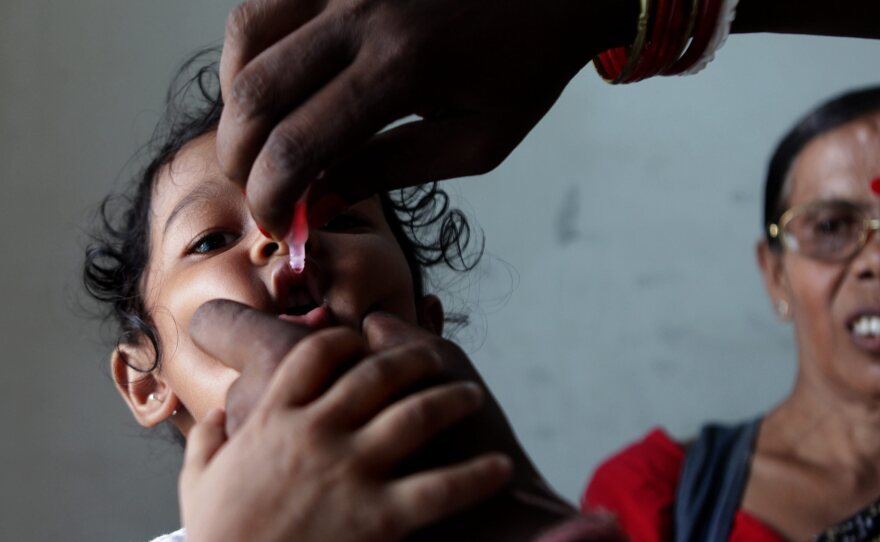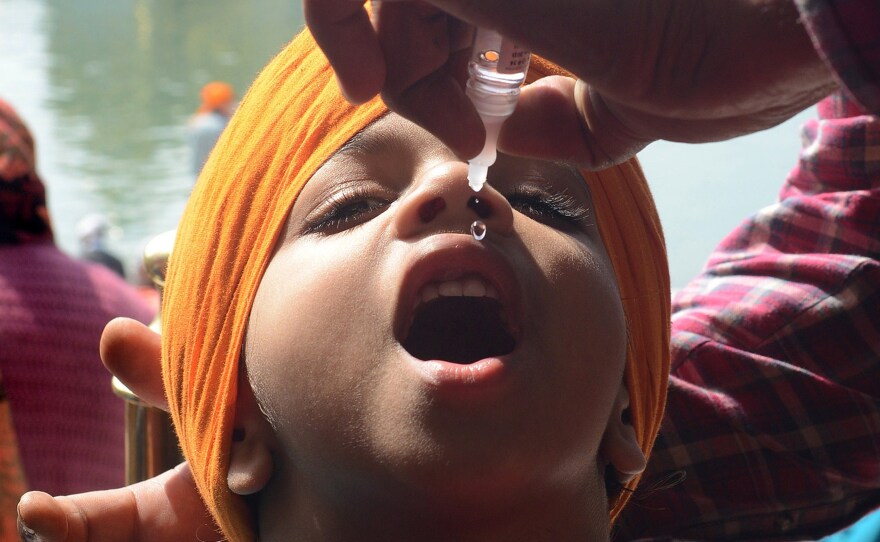
A watershed moment occurred in global health Thursday: The World Health Organization said that its Southeast Asian region is now officially polio-free.
The milestone means that 80 percent of the world's population now lives without fear of the paralyzing disease.
The certification came on the heels of India's successful fight against the disease. The huge nation hasn't reported a case of the wild polio virus in three years. Not long ago, India had more cases of polio than any other country in the world.
Questions still remain, though, about how India will stay free of polio and whether the country can apply the strategies against polio to other preventable diseases.
India's polio-free status is the culmination of a grueling battle that sent millions of health workers down alleys, up mountains and across deserts to reach every child in India for the past 19 years.
But for many young men and women now in their 20s, the country's achievement comes too late. India's suffering at the hands of polio is still readily apparent in the reconstructive surgery ward of St. Stephen's Hospital in Delhi.
"Everyone can walk and go, and I'm not able to. I'm crawling," says Mushtareen Khan, who caught polio two decades ago when she was 10 months old.
Khan came to this hospital not even able to stand up, says Dr. Mathew Varghese, who has operated on thousands of polio patients. "She has both her hips and both her knees severely deformed."
In hopes of walking again, Khan has already undergone two surgeries on her legs, and will need two more.
"She's almost there," Varghese says. "Another maybe two, three weeks, she'll be straight."
Khan's mother seems to overflow with happiness at her daughter's prognosis — which, Varghese points out, will make the young woman more eligible to be married.
Down the road from St. Stephen's Hospital, a ceremony unfolded at the WHO headquarters that thrilled the doctor`. Medallions were handed out to members of an independent panel that reviewed evidence that 11 countries in Southeast Asia, including India, have eradicated polio
But the battle against the virus is far from over. Hot spots remain in Pakistan, Afghanistan, and Nigeria.
Despite the progress in India and South Asia, the WHO's Dr.Bruce Aylward says there can be no respite in the momentum — if the goal of global eradication of polio is to be achieved by 2018.
"Now the big danger is switched to another virus, called complacency," Aylward says. "And it's as hard to get rid of, sometimes, as the polio virus was. So the challenge, then, is maintaining coverage afterwards, until the whole world is certified polio-free."
But still, India's success against polio is already paying off, says Dr. Poonam Khetrapal Singh, a deputy director of WHO's South-East Asia regional office.
"The polio campaign has laid the foundation to better protect children overall from illness and premature death," she says. " The polio eradication experience now can be used for other vaccine-preventable diseases."
Copyright 2014 NPR. To see more, visit http://www.npr.org/






